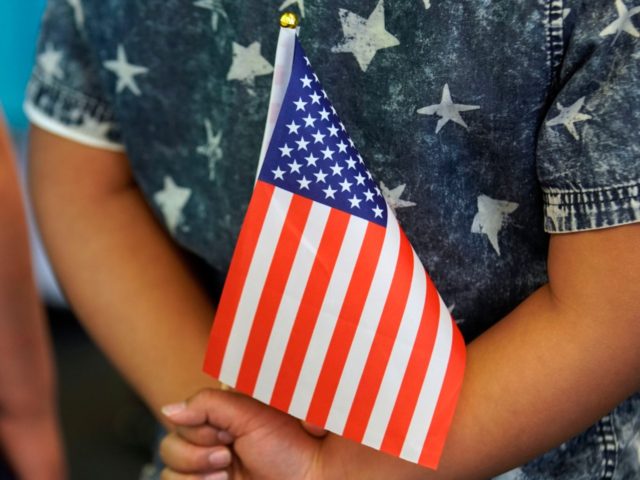Cuban police released artist Luis Manuel Otero Alcántara on Monday after arresting him and several others for organizing a footrace to wave American flags around the streets of Havana.
The event was in honor of Daniel Llorente, a dissident publicly beaten in 2017 for interrupting Cuba’s Marxist May Day parade with an American flag.
Otero Alcántara – no stranger to repressive Castro regime police – explained to several Cuban and Cuban-American media outlets following his release that he and a group of about 50 Cuban artists and activists were in the process of staging an art performance to honor Llorente when police broke up the event. Titled “Se U.S.A.” (“Be U.S.A.”), the performance consisted of a footrace in which the participants would wave the U.S. flag publicly in defiance of the Cuban regime.
Otero previously worked on a project called the Museum of Dissidence in Havana, meant to highlight anti-Castro voices, and was reportedly working on a fashion show project featuring the American flag.
As Otero explained to Florida’s Radio Martí on Monday, Cuba has no specific law banning the public display of the U.S. flag and many Cubans publicly wear clothing with American flag decorations on them. Nonetheless, police regularly harass, attack, and arrest dissidents seen wearing or waving the flag in public, accusing them of “annexationism.” Dissidents caught some of the intevention at the footrace on video:
The “Se U.S.A.” exhibition “was just a competition, like how people play baseball on the street,” Otero told Martí. “It could have been soccer, it could have been anything … there were about 25 young people running. Everything was under control.”
He noted that, unlike street baseball, the race did have a political message.
“It was an homage to Daniel Llorente, the man with the flag. The basis of this performance is freedom. How can they take an individual like Daniel Llorente [away]?” he asked. “They can feel whatever identity they want.”
Otero added that the race was a rejection of the “false patriotism and false identity they [the Cuban communist regime] want to impose on us.” He added that the group would “do this every year” and that he, personally, was planning to sue the Cuban government for his detention. Otero spent four days behind bars without charges. They could not charge him, he argued, because “waving a U.S. flag is not a crime in Cuba.”
In remarks to Cubanet, Otero noted that the other message participants wanted to send is that “young people do not hate the United States.”
“I am not pro-American or pro-anything. The homage to Daniel Llorente is the right that all human beings have to go against the retrograde patriotic concept that they want to use to cage us on this island,” he said.
The display interrupted preparations for the XIII Havana Biennial, a regime-sponsored art show featuring pro-government art. Cuban Viceminister of Culture Fernando Rojas addressed the pro-American display on Twitter, asserting that it would not interrupt the communist event. “Thousands of expositions, hundreds of artists, millions of Cubans, the great popular festival of visual art in Havana that three annexationists will not dampen,” he wrote.
While the government released Otero, Daniel Llorente himself remains behind bars since April 9 after attempting to enter a UNICEF office in Havana. Llorente has spent most of April and May behind bars since 2017, when he interrupted that year’s May Day parade – a celebration of Marxism – by running in front of the parade waving an American flag. Cuban plain-clothed government agents beat him and dragged him away on camera. He spent almost a year following the incident in a mental institution because, according to staff there, he had professed a belief in God.
Prior to that event, police arrested Llorente in 2016 for waving a U.S. flag at a Carnival Cruises ship, the first to dock in Havana since the Cuban Revolution. Following his May 2018 release, Llorente told international outlets that police were still monitoring and harassing him, telling him he could not use the American flag on his business card.
Llorente’s son Eliécer, who was arrested and released last week, said his father was attempting to talk to UNICEF officials in the hopes of organizing an event to defend the human rights of children. He told Martí his father remains behind bars and he has no information on his whereabouts.
Llorente was previously arrested in February for attempting to advocate for tornado victims in central Havana, where the government refused to hand out humanitarian aid for free and instead sold it to Cubans who had lost their homes and livelihoods in the disaster.
Llorente is not a member of any Cuban dissident group and acts independently, having said in interviews in the past that he fears Cuban government agents have active spies lurking in most of the major groups opposing the government.

COMMENTS
Please let us know if you're having issues with commenting.